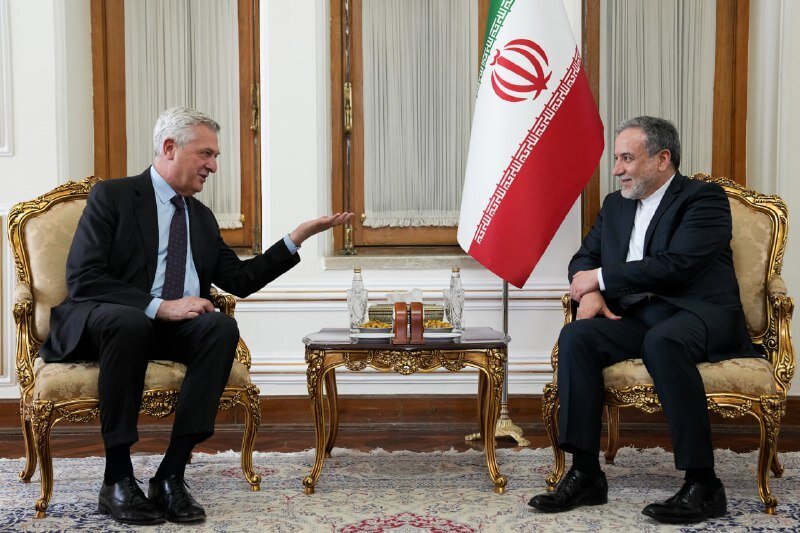UNHCR chief discuss undocumented Afghans repatriation in Tehran meeting with Araghchi

TEHRAN – Iran’s Foreign Minister Abbas Araghchi has reiterated the country’s firm commitment to repatriating Afghan refugees living without valid legal documentation, urging the international community to assume its responsibilities and extend necessary support for this effort.
Araghchi made the remarks during a Tuesday meeting in Tehran with United Nations High Commissioner for Refugees Filippo Grandi, where both sides reviewed recent developments and cooperation on Afghan refugee issues.
Emphasizing Iran’s decades-long humanitarian role in hosting Afghan refugees, the top diplomat highlighted the government’s dedication to ensuring a voluntary and dignified return process for those residing irregularly in Iran.
Araghchi further stressed the importance of enhanced collaboration between Afghanistan and the UN to accelerate repatriation efforts and to help create sustainable employment and living conditions for returning Afghans in their homeland.
In response, Grandi expressed appreciation for Iran’s longstanding partnership with UNHCR and its extensive support for Afghan refugees. He also shared insights from his recent visit to Kabul, where he held discussions with officials from the Afghan interim government about refugee matters and voluntary returns.
Grandi voiced optimism that ongoing coordination between Iran and Afghanistan would facilitate a repatriation process that safeguards the rights and dignity of Afghan nationals.
Since late June, following the recent 12-day Israeli aggression against Iran, Tehran has begun implementing measures to deport Afghan refugees lacking legal status. According to Malek Hosseini, head of employment affairs at Iran’s Ministry of Cooperatives, Labor, and Social Welfare, fewer than 700,000 Afghan refugees have returned home under this program.
Hosseini noted that less than 10 percent of the Afghan population in Iran—around 434,000 people—possess official documentation permitting residence and employment.
Leave a Comment